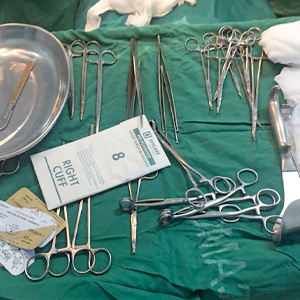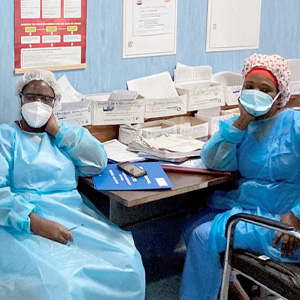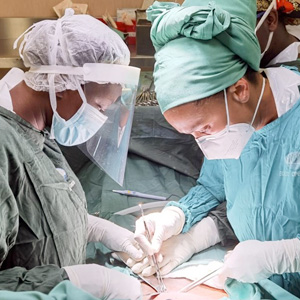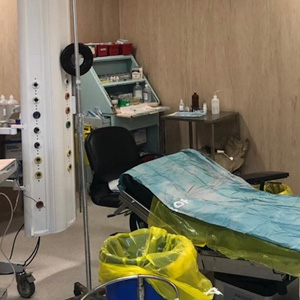Now, have a peek into our pantry:
 |
STUFF This is an S we are routinely lacking—especially good surgical equipment, including surgical instruments, sutures and gloves. $100
can buy new surgical instruments
$500
can buy a wall-mounted blood pressure cuff
$1,000
can buy life-saving medications
$5000
can buy a portable EKG machine
$20,000
can buy a mobile ultrasound machine
|
 |
STAFF Thankfully, we are adequately staffed with dedicated and compassionate medical professionals. $8,000
can pay for a month's salary for a full-time pharmacist to ensure life-saving drugs are available in the spaces we need when we want them
$20,000
can pay for a month's salary for a full-time American specialist physician to teach and train in Maputo
|
 |
SKILLS We are leveraging the knowledge base and teaching skills of Stony Brook nurses and doctors to provide specialized skills training to improve the quality of care and to help save lives. $500
can pay for annual running costs
for the surgical skills lab $1,500
can pay for clinical faculty airfare from
New York to teach in Maputo $8,000
can pay for a visiting resident externship
to come learn from Experts at Stony Brook University |
 |
SPACE We’re fortunate to have decent space—this clean and respectful birthing room, for example. $500,000
can pay for a Stony Brook Center for
Global Health Equity building in Mozambique |
 |
SYSTEMS We are working to strengthen the existing health system by leveraging available resources, re-thinking efficient patient movement through the hospital, and re-working supplies allocation across departments—all to improve health outcomes. $1,000
can pay for a paging system to notify the blood bank when we need an emergency blood transfusion to save a life
$10,000
can pay for the setup of an electronic database to capture real-time patient data
|
